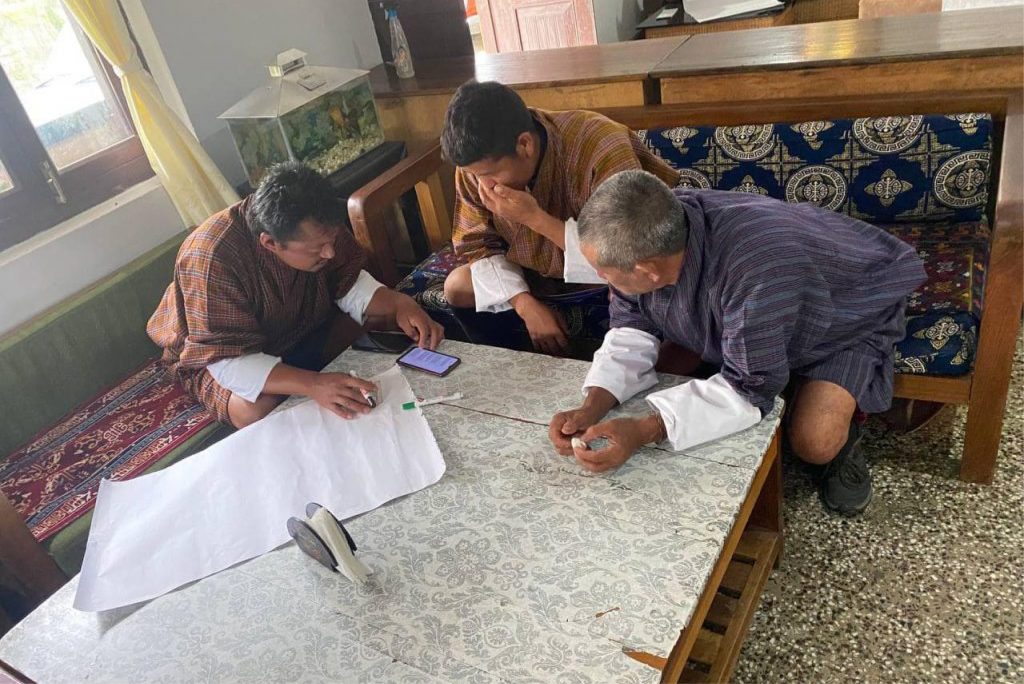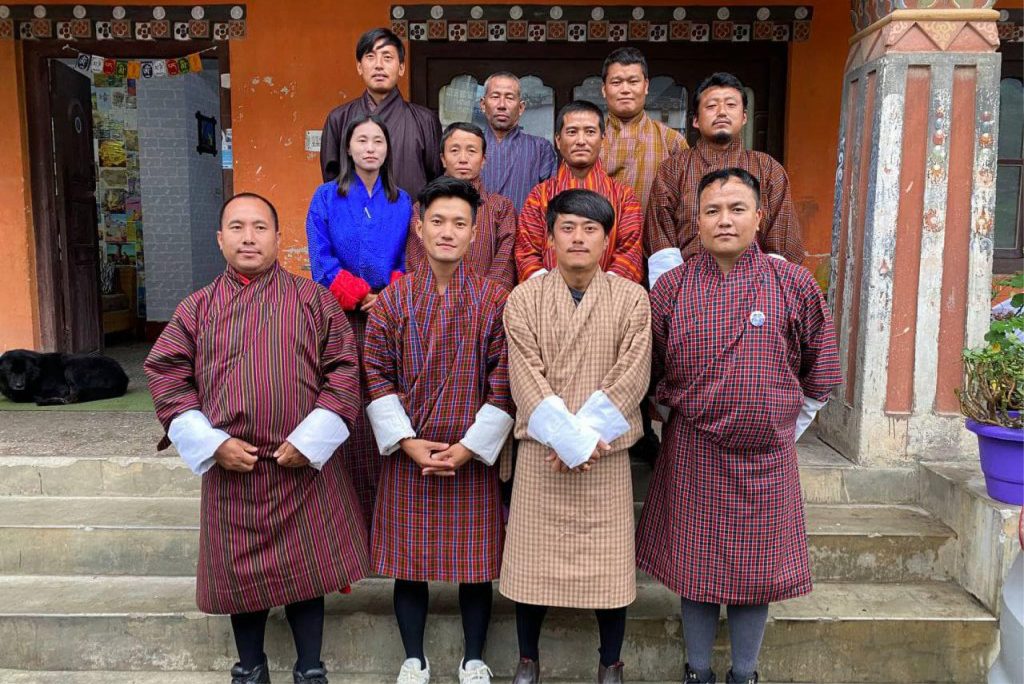Human-wildlife Conflict(HWC) can occur in various forms, such as crop depredation by angulates, predation on livestock by carnivores, and direct threats to human safety by wildlife. It has become paramount importance in managing these implications for the benefit of both the conservation of wildlife and the well-being of human populations.
When does HWC occur? It arises mainly due to the same or similar need and behaviors of wildlife and the interests and activities of human beings clash. With depletion of natural resources in the wild and increase demands of resources for the human needs, the conflict is mounting more and more than ever.
To mitigate the locally-led initiative in managing the HWC, RSPN has conducted two-day training on managing HWC through Crop compensation scheme. The training conducted from 21 – 22 August 2023 was attended by community groups of Berti and Goling chiwog under Zhemgang district and Ngormey-Bayzam chiwog under Trongsa district. These communities fall under White-bellied Heron landscape.
It is funded by the Federal Ministry for the Environment, Nature Conservation, Nuclear Safety and Consumer Protection (BMUV), Germany through International Climate Initiative (IKI) with co-funding from MAVA Foundation, Switzerland and the Royal Society for Protection of Nature (RSPN).


Copyright © 2026 RSPN All Rights Reserved